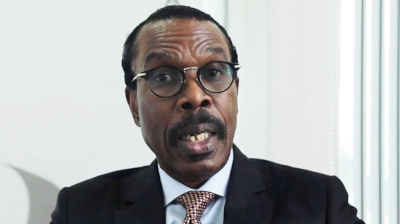Paragraph 1: The Rationale Behind the Proposed Telecom Tariff Hike
Nigeria’s telecommunications sector is on the cusp of a significant transformation, with a proposed tariff hike taking center stage. Bismarck Rewane, CEO of Financial Derivatives, has voiced strong support for this adjustment, arguing that it holds the key to enhancing productivity and moderating inflation within the broader economy. Telecom operators have formally submitted a proposal to the Nigerian Communications Commission (NCC), the industry regulator, requesting a substantial 100% increase in tariffs. Their justification rests on the escalating operational costs they face, driven by inflationary pressures and the increasing expenses associated with service delivery. This move comes amidst a backdrop of rising inflation and economic challenges, making the tariff adjustment a crucial point of discussion and debate.
Paragraph 2: Government Support and Investor Confidence
The proposed tariff hike has garnered support not only from industry players but also from government officials. Nigeria’s Minister of Communications, Innovation, and Digital Economy, Bosun Tijani, has publicly acknowledged the government’s intention to adjust tariffs, signaling a potential shift in policy. The NCC is currently tasked with finalizing the specific modalities of this adjustment, a process that involves balancing the interests of operators and consumers. Importantly, Rewane points to a surge in investor confidence following the announcement of the proposed hike, citing a 10% increase in MTN’s share price as evidence that the market anticipates positive outcomes from this adjustment. This surge in investor confidence suggests that the market views the potential tariff increase as a necessary step towards ensuring the long-term financial health of the telecom sector.
Paragraph 3: The Link Between Tariff Hikes, Productivity, and Inflation
Rewane’s argument hinges on the interconnectedness of telecom tariffs, productivity, and inflation. He posits that a tariff increase, coupled with further investments in the telecom sector, will create a more sustainable industry. This sustainability, in turn, will indirectly boost productivity and overall output in the economy. The logic is that improved telecommunications infrastructure and services facilitate business operations, communication, and access to information, all of which contribute to increased productivity. Furthermore, Rewane contends that this increase in productivity will have a moderating effect on inflation, aligning with the government’s economic goals. This complex interplay of factors highlights the potential macroeconomic implications of the proposed tariff adjustment.
Paragraph 4: Balancing Sustainability and Consumer Protection
While the potential benefits of the tariff hike are touted, there’s also a critical need to address consumer concerns. The NCC has initiated a series of consultations with telecom consumer groups to discuss the proposed changes and ensure that their perspectives are considered. This dialogue is crucial for striking a balance between the operators’ need for financial sustainability and the imperative to protect consumers from undue cost burdens. The ultimate decision on the tariff adjustment will be made after these consultations, reflecting the NCC’s commitment to a balanced approach. The regulator is tasked with navigating the complex terrain of competing interests, seeking a solution that benefits both the industry and the consumers it serves.
Paragraph 5: A More Moderate Adjustment Anticipated
Despite the operators’ request for a 100% tariff hike, Rewane believes a more moderate adjustment is likely. He predicts an increase in the range of 40% to 50%, deeming this a fair compromise after years of static tariffs. This prediction suggests that the final decision will take into account the current economic climate and the potential impact on consumers. The regulator’s challenge lies in finding the "sweet spot" – an adjustment that provides sufficient relief to operators without imposing an excessive burden on consumers. This careful calibration is essential for ensuring the long-term health of the telecom sector while safeguarding the interests of its users.
Paragraph 6: The NCC’s Balancing Act
The NCC’s forthcoming decision on the proposed tariff hike carries significant weight, as it will shape the future of Nigeria’s telecommunications landscape. The regulator faces the complex task of balancing industry sustainability with consumer affordability. The consultations with consumer groups are a vital part of this process, ensuring that all stakeholders have a voice in the final outcome. The NCC’s ultimate decision will reflect a delicate balancing act, aiming to foster a thriving telecom sector while protecting consumers from exorbitant costs. This decision will have far-reaching consequences, influencing not only the financial health of telecom operators but also the accessibility and affordability of essential communication services for millions of Nigerians.














